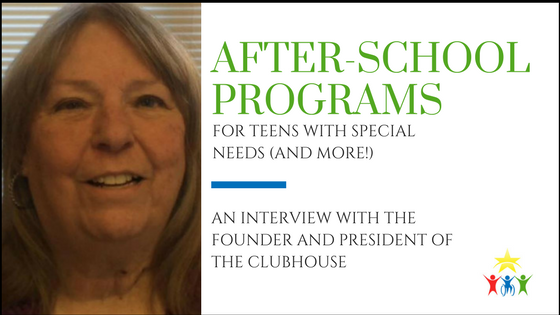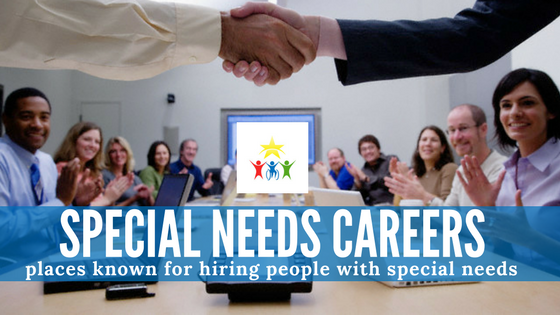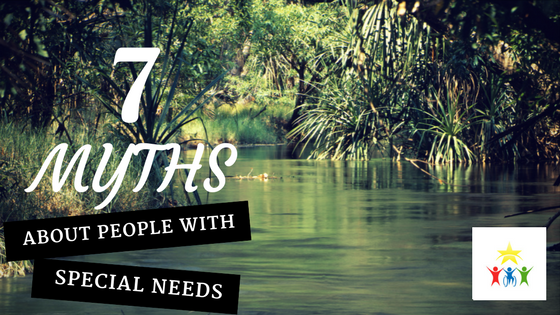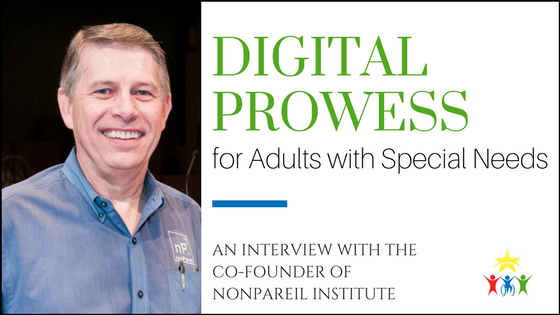The 10 Best TED Talks about Special Needs
TED (or technology, entertainment and design) Talks have featured presentations from phenomenal speakers with the brightest minds in many fields including science, philosophy, entertainment, business, philanthropy, art and religion. The nonprofit organization serves as a platform for intellectual individuals to speak freely about their passions, inspiring their audiences. Amongst a plethora of other inspirational speeches, TEDTalks regarding special needs are exceptionally moving as they reveal the gifts hidden behind disabilities, challenging conceptions of normalcy. Here are 10 of the best TedTalks about special needs:
1. How autism freed me to be myself
~Rosie King
Rosie King was diagnosed with Asperger’s syndrome at the age of nine and challenges the notion of achieving normalcy in her TEDTalk. She speaks about her two younger siblings who are both on the autism spectrum as well. Despite her siblings being nonverbal, Rosie found ways to communicate with them because she could relate to them and think outside of the conventional box that professionals usually place autism in.
She questions the need many people have for being normal, pushing her audience to celebrate uniqueness and individuality. Rosie boldly expresses how her autism is not something that holds her back but pushes her forward.
2. How a blind astronomer found a way to hear the stars
~Wanda Diaz Merced
Wanda Diaz Merced is one of the most influential astronomer of her generation. She is also blind. In her talk, Wanda expresses how “the body is something changeable.” Anything can happen to anyone at any time. Just like she lost her sight, anyone may develop a disability at any point in time, sometimes even completely out of the blue.
However, she argues that someone’s disability should not be able to affect the career they want to pursue. Wanda worked hard to be a productive member of the astronomical community but if she did not have the information access that allowed her to hear the stars, her skill and talent would have gone wasted.
Wanda’s inspirational talk encourages giving all individuals, with or without disabilities, the opportunity to succeed without limits, allowing them to reach personal and professional fulfillment while pursuing their passions.
3. Why design should include everyone
~Sinéad Burke
In this talk, Sinéad Burke talks about the importance of design in term of accessibility and the impact inaccessible design can have on individuals with disabilities by displaying the world through her own perspective. Sinéad has a common form of dwarfism called achondroplasia and walks the audience through her day and the impact non-inclusive design has on her daily life.
Even tasks as simple and inherent as going to the bathroom can grow to be a challenge. Sometimes Sinéad cannot lock a stall door, sometimes she cannot reach the sink and soap to wash her hands, sometimes she cannot reach the toilet.
Why? Because designers do not keep the needs of people like her and people with other disabilities in mind during the planning process. Besides its direct function, Sinéad says design is also a way for individuals with disabilities to feel included in the world. Design can affect an individual’s human rights as well as their dignity.
Sinéad concludes her talk by pushing individuals to think about everyone who is not included in design and states that while design is an enormous privilege, it is a bigger responsibility.
4. How I fail at being disabled
~Susan Robinson
In this TEDTalk, Susan Robinson also challenges the idea of normalcy by providing five tips to fail at being disabled. Susan has a genetic visual impairment and is, therefore, legally blind. While she cannot successfully recognize people visually, she relies on her other senses to aid her.
Susan also describes this use of her other strengths, her best strengths as the reason behind all her successes. She explains that because individuals with disabilities always make sure to put their best selves forwards, they are able to achieve so much. Susan’s talk emanates a strong aura of individuality and inspiration, effectively relaying that a disability does not have to be an obstacle but can actually be a gift.
5. Love, no matter what
~Andrew Solomon
Every child is different and regardless of what these differences may be, whether a child is differently abled, homosexual, a prodigy or even a criminal, a parent’s love for that child is unconditional, according to Andrew Solomon. Andrew conducted a series of interviews with parents who had a child living with disabilities or was different in some way.
In this TEDTalk, Andrew is able to effectively capture the joy and personal fulfillment parents raising children under extraordinary circumstances feel. The true power and emotion of the unconditional love parents give to their children is further presented through the selfless wish for their children with special needs to live easier instead of the parents themselves birthing a child in different circumstances.
This talk truly captures the true emotion and love dedicated to parenting a child with special needs.
6. A word game to communicate in any language
~Ajit Narayanan
Ajit Narayanan spent a lot of time working with kids had difficulties with speech, particularly autistic children. While working with them, he was able to figure out a way to think about language in the form of pictures. He was able to a develop an empowering FreeSpeech app, which serves to help nonverbal individuals communicate by relating words to pictures and portraying concepts in the form of maps.
The app transcends different languages, giving users access to all types of cultures all over the world. Ajit’s TedTalk truly encompasses the power of communication and the satisfaction that comes with receiving that power.
7. Embrace the shake
~Phil Hansen
Phil Hansen was an artist. While at art school, he developed a neurological disorder that caused his hand to shake, keeping him from pursuing the pointillistic style he was used to, so he stopped pursuing his dream. Fast forward three years and he learned to work around his disability.
In this TEDTalk, Phil retells his story and the challenges he had to overcome in order to pursue more creative endeavors in his art. Phil inspires his audiences to remember to always make the most and take control of their limitation. While creativity may not usually be harness through conditions as unlikely to limitations, limitations are perhaps one of the best ways to rethink ways out of ruts and challenge accepted norms.
8. Synthetic voices, as unique as fingerprints
~Rupal Patel
Rupal Patel is a speech scientist who works to create voices for the voiceless. This means that she works to create personalized voices for individuals who are unable to speak because of their disability. She explains how Stephen Hawking’s voice is not necessarily his actual identity, especially as he speaks in an American accent instead of a British one.
This is because different synthetic voices are limited and a voice is not made specifically for someone who needs it. As Rupal explains the process of creating and the importance of synthetic voices, the audiences can really begin to feel how a disability does not define a person.
9. In the key of genius
~Adam Ockleford and Derek Paravinci
As individuals face different hardships they adopt different coping mechanisms. These coping mechanisms become especially important for individuals with special needs. Derek Paravinci, who was born blind and has severe autism, found his coping mechanism at a very young age.
By the time he was four years old, he was able to play “English Country Garden” flawlessly on the piano. Soon, he also acquire perfect pitch and became a musical prodigy. However, his successes go far beyond his talent, prompted by the immense support of his piano teacher, Adam Ockelford, and his nanny.
This TEDTalk presented by both Adam and Derek effectively relays how support and belief from friends and families members is able to push people with disabilities to do great things.
10. There are no scraps of men
~Alberto Cairo
After serving as a physical therapist for Red Cross in Afghanistan for 21 years, Alberto Cairo encountered several disabled people. These people were missing limbs and needed prosthetics and had to relearn how to walk. Alberto tells the story of his orthopedic center in Kabul closing down as conditions worsened in the city since physical rehabilitation was not considered a priority.
However, with great persistence, people continued to queue outside the center everyday in hope for rehabilitation. Eventually, Alberto gave in and after that day, the center never closed again, regardless of the state of turmoil. This TEDTalk truly displays the need and importance of aiding individuals with disabilities and the strength and determination disabled people have for gaining accessibility.
Enroll your child in our special needs program
These TEDTalks are inspiring and motivational beyond measure. They challenge viewers’ understanding and comprehension of disability. At Achievement Center of Texas, we also want to challenge how people with disabilities are viewed. We want to help individuals with special needs reach a level of independence where they can achieve their aspirations.
We work to cater to each student’s individual abilities and aim to validate their individual experiences. Individuals with special needs have a lot to share with world. We believe they should be provided the resources and opportunities to grow, free from any sort of prejudice as they are a gift to the world.
If you are a parent of a child with special needs and want them to know that their disability does not define them, please enroll with us at the Achievement Center of Texas. We would love to have your child at our center and help them find the self-confidence to discover their abilities.
Donate today
At the Achievement Center of Texas, we are here to cater to the unique needs of children and adults with special needs and to equip them with the independence and creativity to stand up for themselves.
Anything, no matter the amount, can make all the difference for our students. Please click the button below to donate. Every little bit can make ALL the difference!
Meraal Hakeem is currently pursuing a Bachelor of Arts at the University of Texas at Austin. In her free time, Meraal enjoys reading, writing and volunteering with various organizations to raise awareness of different human rights issues present in her community.





